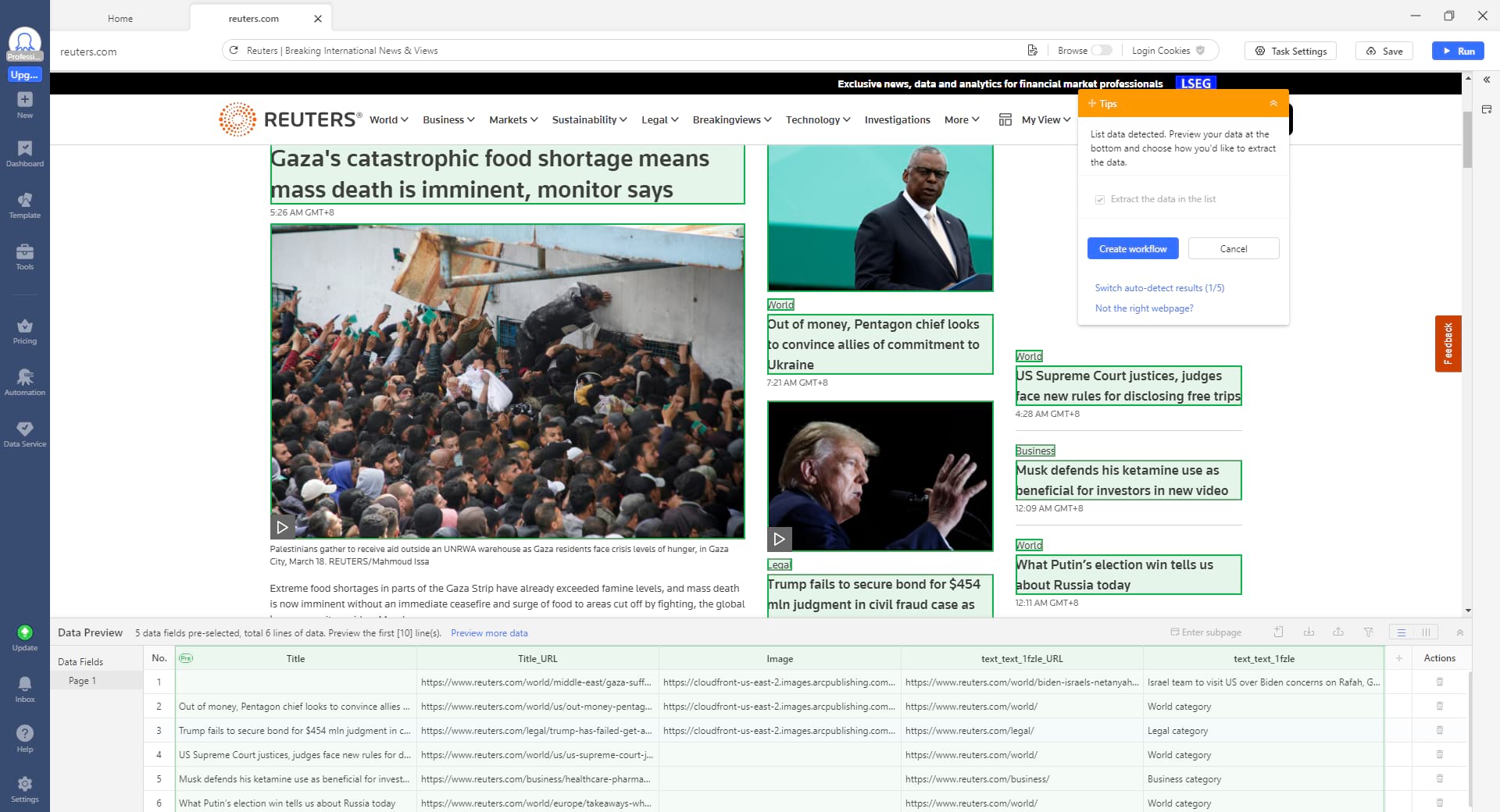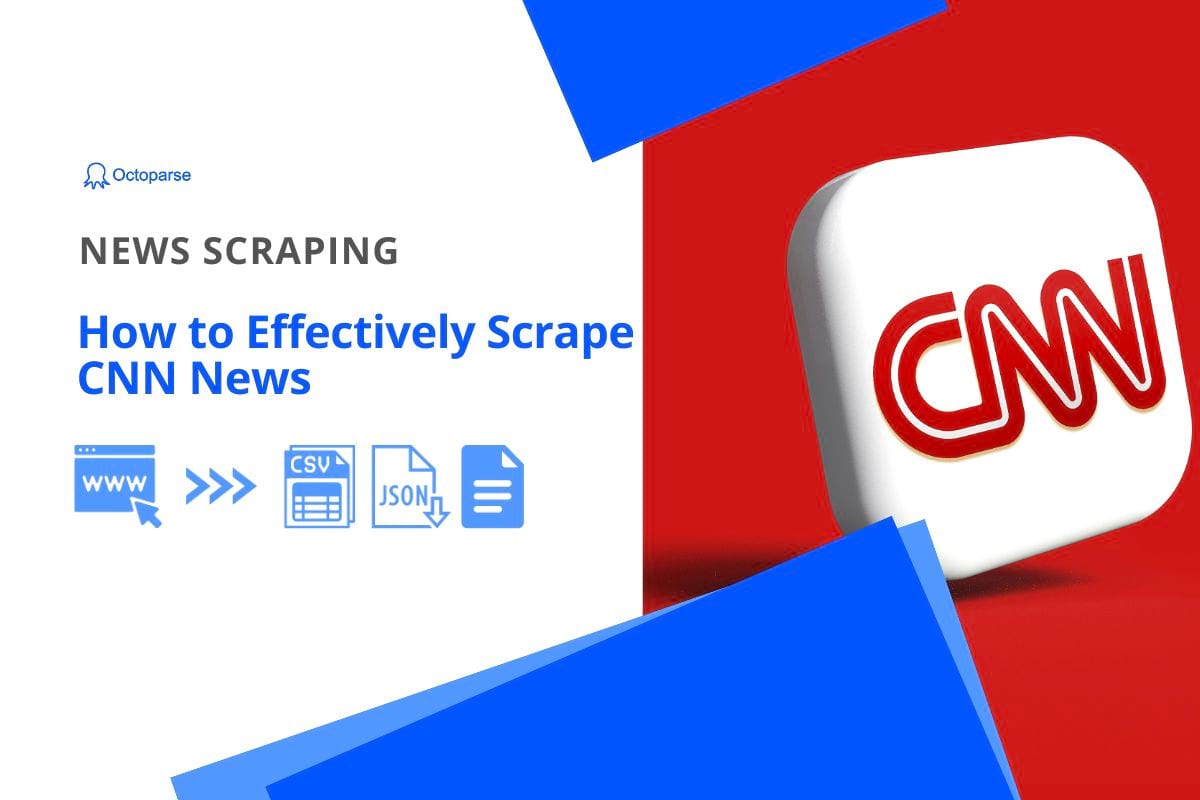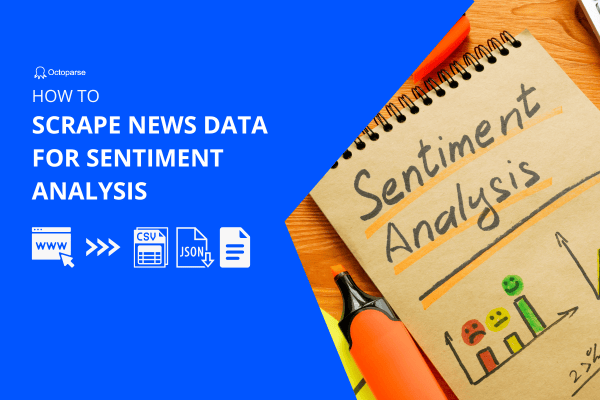Reuters is one of the largest and most dependable global multi-media news providers, providing a wealth of information on a diverse array of topics. To obtain data from such a source could be a worthwhile endeavor for many reasons, such as research, analysis, or building a unique database. We can retrieve the data for useful use thanks to the practice of web scraping. The purpose of this post is to instruct you on effective Reuters scraping techniques. These detailed instructions will help you extract useful data from Reuters while abiding by the ethical and legal limits of web scraping, regardless of whether you’re a business analyst, researcher, or enthusiast. As we go into the specifics, take a seat back and get ready to improve your data collection strategies.
What Is Reuters
A leading and reliable worldwide news source, Reuters offers a vast array of in-depth, real-time news coverage. It was started in the United Kingdom in 1851 by Paul Julius Reuter. These days, professionals use desktop terminals, international media organizations, industry events, and direct consumer access to obtain business, finance, national, and worldwide news. It provides detailed coverage of several arenas such as politics, sports, business, technology, and more. Its reputation for speed, accuracy, and freedom from bias makes it an incredibly valuable source of information.
Understanding the Importance of Reuters Scraping
The practice of scraping or obtaining vast volumes of data from the Reuters website is called Reuters scraping, or web scraping for short. In the era of big data, this procedure is becoming more and more important since quick access to precise and timely information can give a competitive edge. Reuters covers a broad range of subjects from around the globe and across numerous industries. Scraping this data can facilitate research across multiple disciplines, aid in sentiment analysis, or drive investment strategies in financial markets.
The power of Reuters scraping lies in its offering of big data, which is increasingly becoming crucial in a variety of sectors. In particular, it holds extensive value in the arena of sentiment analysis and financial markets. With its vast array of information encompassing global events and diverse industries, transforming this sheer volume of data into actionable insights through scraping can significantly enhance research practices.
For instance, sentiment analysis, which is the computational interpretation and classification of opinions within a piece of text, benefits greatly from Reuters scraping. It enables analysts to gauge public sentiment towards particular events, politics, or products, which in turn can influence marketing strategies or policy-making. On the other hand, in the financial markets, investment strategies can also be honed based on the data obtained. Real-time and accurate information on market trends, economic developments, and other vital factors can be instrumental for investors when making calculated and strategic decisions to optimize their returns. Thus, Reuters web scraping is an invaluable tool in the age of big data, bridging precise information with competitive advantages.
What Data You Can Scrape from Reuters
Since Reuters covers so many topics and has broad coverage, it is able to scrape a huge amount of data from it. This covers, but is not limited to, real-time news updates in a variety of fields, such as business, politics, technology, and entertainment. One can also scrape data relating to stock prices, financial data, market trends, and indices information used extensively in financial analytics. Press releases, public statements, and interview transcripts can also be extracted. This wealth of data can provide valuable insights and aid decision-making processes for businesses, researchers, and investors.
How to Scrape Reuters Within Four Easy Steps
Selecting the appropriate scraping technology is essential for effectively and error-free retrieving Reuters data. Web scraping tools can ensure data correctness, give high-speed data extraction, be customizable based on the design of the website, and allow frequent updates.
Octoparse is a good choice for scraping Reuters data, which is well-known for its sophisticated features and user-friendly interface. Without the need for complex technological knowledge, users may quickly extract and transform information from Reuters into structured data by using a powerful news or article scraper. It works really well when used to scrape news and articles in Reuters. Even non-programmers may easily navigate their way through the website’s content and scrape news and article data.

Step 1: Create a new task to scrape data from Reuters
Copy the URL that you want to pull the data from Reuters and paste it into Octoparse. Click “Start” to create a new scraping task and then the page will load in Octoparse’s built-in browser. Wait until the page loading is complete before moving to the next step.
Step 2: Auto-detect Reuters information
Click “Auto-detect webpage data” in the Tips panel once the page is loaded. It can “predict” the data you’re looking for in Reuters by analyzing the whole page and highlighting all the detected data for you. Preview the data inside the browser to see if they are the targeted data.
Step 3: Create and modify the Reuters scraper
Click “Create workflow” after selecting all the required data. Then, a workflow will be created on the right-hand side. You can check every action scraper in this flowchart. Check if the scraper runs as expected by clicking on each action. You can also add new steps or remove any unwanted steps on the chart.
Step 4: Run the task and export the data
Once you’ve double-checked all the details, click on the Run button to run the task. Run the task on your device or Octoparse’s cloud servers. Running locally is ideal for rapid runs and task troubleshooting. On the other hand, larger projects are better suited for Octoparse cloud servers. When the scraping process is completed, export the data to a local file like Excel, or a database like Google Sheets for further use.
Feel free to check out our TOP list of article scrapers for news and articles scraping that fit your needs.
Wrap up
Web scraping stands as a potent tool for extracting data from Reuters. It is crucial, however, to respect the guidelines of the website, including abiding by robots.txt, copyright laws and ensuring the ethical utilization of the obtained data. For more sizable scraping tasks, consider using advanced capabilities that tools like Octoparse provide, such as IP rotation and task scheduling, among others. Utilizing Octoparse to scrape information from Reuters is extremely beneficial as it eliminates the cumbersome process of gathering data manually, providing swift and precise data for enlightened decision-making. Now gear up to dive into the easeful journey of web scraping!




